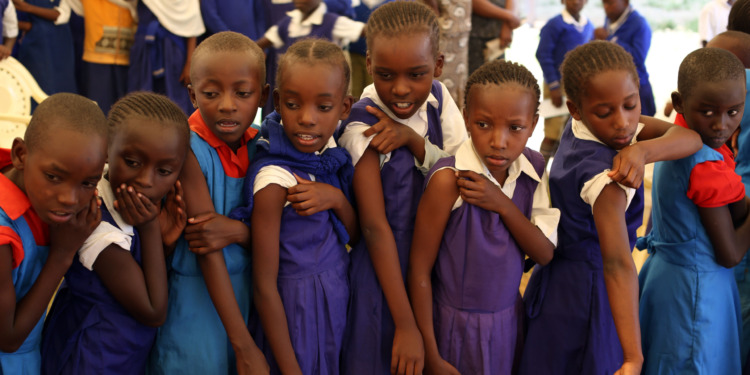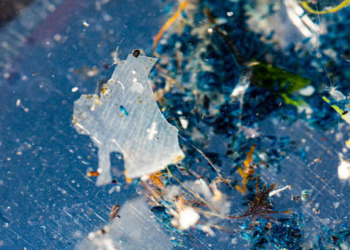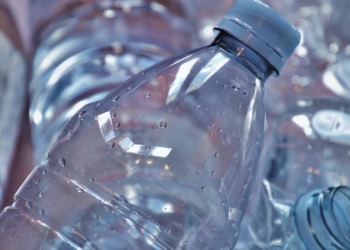As of 2018, March 4 has been named the International HPV (Human Papillomavirus) Awareness Day. HPV is a sexually transmitted virus that can be caught at an early age and cause cancer later in life, specifically cervical cancer in women.
There is a commonly used and successful vaccination against HPV, however a large proportion of women and girls most affected by it around the world actively choose not to seek medical assistance in protecting themselves against the virus, largely due to an array of socio-cultural barriers surrounding sexual and reproductive health.
There are currently huge inequities worldwide in relation to the health outcomes of cervical cancer diagnoses.
According to the World Health Organisation (WHO), cervical cancer is the fourth most common cancer in women globally.
However, unlike many types of cancer, cervical cancer is easily preventable with the HPV vaccination and cancer screenings. This is because 95% of cervical cancer cases worldwide are caused by an HPV infection.
Furthermore, 90% of deaths from cervical cancer in 2020 were women living in low or middle-income countries.
Additionally, women with HIV are six times more likely to catch cervical cancer than those without HIV, with 95% of people with HIV worldwide also living in developing countries.
What’s surprising, is that the HPV vaccine which could prevent huge numbers of cervical cancer deaths, is often not taken up by young girls due to the many myths, taboos and social norms that discourage them from getting vaccinated.
The main issue that needs to be combatted is diluting the shame that women feel when talking about their sexual and reproductive health, whether it be in medical or social settings.
One of the most common reasons so few women decide to have the HPV vaccination — which is well known to successfully prevent cervical cancer — is because it is not culturally appropriate to seek medical assistance for anything related to sexual and reproductive health, especially for women.
Liya Haile, country director in Ethiopia for Girl Effect, explains the main reasons that girls do not take up the offer of vaccination:
“There are three key barriers to women getting vaccines. Gender barriers, including myths about how the vaccine affects women. There are social norm barriers, with girls feeling uncomfortable about going to health centers. And there are knowledge and logistical barriers, with many people not knowing what the HPV vaccine is for, or how to get it.”
Related Articles: Africas Low Vaccine Rates Pose Worldwide Threats | The Role of Religion in Covid Prevention Response: Where Angels Fear to Tread
Another common reason is parents not wanting to vaccinate their children because they think that they are below the age of being sexually active.
The education that needs to occur in this instance is understanding that it’s better to prevent a problem than attempt to deal with it once it has already occurred.
As senior marketing and communications manager at Girl Effect, Emily McQueen, tells Impakter, the Covid-19 pandemic also affected the number of girls choosing to be vaccinated against HPV.
“Huge numbers of girls missed out on the HPV vaccine because of school closures during the pandemic. Early anecdotal information shows that persistent myths around the covid-19 vaccine have impacted confidence in other vaccines including HPV,” says McQueen.
Empowering women and girls to get vaccinated
To address this concerning situation, Girl Effect has teamed up with Gavi the Vaccine Alliance, an international organization that improves access to vaccinations for children living in the poorest countries in the world. Together, the two organizations are working on a program that aims to increase the uptake of HPV and routine vaccines in Tanzania and Ethiopia.
Together with @girleffect, we’re increasing HPV vaccine awareness and uptake in Tanzania and Ethiopia through fact-based storytelling that empowers women to take control of their own healthcare choices: https://t.co/37uzxrAdOR #CervicalCancer #VaccinesWork pic.twitter.com/fWjEOKvVFl
— Gavi, the Vaccine Alliance (@gavi) January 30, 2023
The two organizations have taken on a four-year collaboration to try and develop behaviour change in the youth in need of the vaccination, which aims to “address the gender barriers that limit vaccine uptake.”
“Girls often assume that health services are not intended for them and seek healthcare only when they are ill,” says Jess Posner Odede, CEO of Girl Effect, “but if a girl understands the value of her health and her first experience of a service is positive – like the HPV vaccine – this can lead to her making positive health choices for herself and for her family in the future.”
“We know that when girls are supported to take control of their health, this leads to healthier families, communities and future generations,” stated Posner Odede.
This year, Gavi the Vaccine Alliance also relaunched their HPV vaccine program, backed with over US$600 million of investment.
Gavi hopes that by 2025, they will have reached as many as 86 million girls, which would hopefully lead to the prevention of 1.4 million deaths from cervical cancer.
As much as changing such deep-rooted cultural barriers will be a challenge, Gavi and Girl Effect are driven by a passionate desire for positive change, and they have the expertise to do so.
This partnership should create drastic improvements in the health of girls and young women in Ethiopia and Tanzania.
Although the education that will be given as part of this initiative will be focused largely on encouraging girls to get vaccinated, it will also encourage them to talk openly about their sexual health — a perspective that will surely be beneficial throughout the rest of their lives, not just in relation to HPV.
It will empower women to love and feel comfortable within themselves, ultimately leading to a bright and prosperous future for women across the world.
Editor’s Note: The opinions expressed here by the authors are their own, not those of Impakter.com — In the Featured Photo: Schoolgirls look at a friend getting an injection after they had been vaccinated against cervical cancer at the Central Primary School in Kitui in Eastern Kenya, May 14, 2013. Featured Photo Credit: ©GAVI/2013/Karel Prinsloo.










